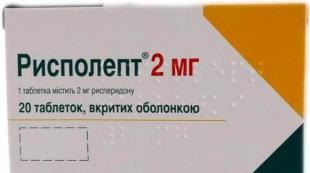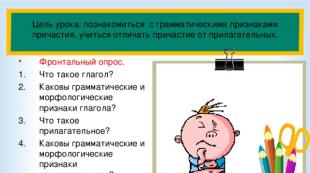How long does it take to get pregnant teeth treated? Is it possible to treat teeth during pregnancy? When is the best time to go to the doctor
4.3333333333333
Approximate reading time: 8 minutes
Pregnancy can be compared to a novel, but each has its own plot. Who has toxicosis from beginning to end, or drowsiness, like a bear in winter, and someone loses a tooth one after another or even worse suffers from wild toothache in the midst of expecting a child. Dental problems are a rather serious and unpleasant problem during the period of bearing a child. How to understand whether it is possible to treat teeth during pregnancy, whether it is necessary to treat teeth during pregnancy, everything is in order with the help of specialists.
Treat or not treat…

Bearing a child involves a number of serious changes in a woman's body, including hormonal and metabolic ones, which change everything and everyone. Therefore, from some ladies you can hear that every pregnancy a sacrifice was made in the form of a lost tooth. Why go for such feats, if you can foresee everything, about which our conversation will go on.
According to the statistics of American scientists, it has been proven that dental problems increase the risk of having children born prematurely or with intrauterine growth retardation.
It is ideal when a woman’s pregnancy is planned, and she can prepare herself for bearing in advance by going through all the specialists in advance: an ENT doctor, surgeon, therapist, etc. A trip to the dentist is also included in the planned preparation, he will find the source of the infection and carry out sanitation, thereby preventing a possible danger.
How scary sick tooth
A bad tooth can cause not only terrible pain, but also become a breeding ground for bacteria. This fact may cause: 
- angina;
- tonsillitis;
- pharyngitis;
- pathologies of the skeletal system (osteomyelitis);
- diseases of gastrointestinal diseases (gastritis, ulcers, etc.);
- heart diseases (myocarditis, pericarditis, etc.);
- pathologies of the genitourinary system (pyelonephritis, cystitis, etc.).
Say that it is not possible for one tooth to create so many serious problems. Maybe dear ladies, if a woman also has chronic diseases that periodically make themselves felt. In this case, dental problems are a trigger for their exacerbation. Therefore, the best option, of course, is a planned pregnancy.
Is it possible to remove, seal, whiten, insert, prosthetic teeth during pregnancy? Convenient table for pregnant women
But happiness sometimes “comes” unexpectedly and all plans can be radically changed. What to do and is it possible to treat teeth for pregnant women if you did not have time to visit your dentist before pregnancy? What procedures can be done, and which ones should be abandoned? Read and memorize.
|
What can be done |
What not to do |
|---|---|
|
caries therapy - installation of fillings |
teeth cleaning and whitening |
|
periodontitis therapy |
installation of implants |
|
extraction of teeth other than figure eights |
x-ray (permitted according to indications in the second half of pregnancy) |
|
use of anesthesia (ultracaine, lidocaine, etc.) |
use of general anesthesia |
|
braces installation |
removal of eights |
|
sanitation and preventive examination |
prosthetics |
|
stomatitis treatment |
bite correction |
|
ignore the old filling |
So, based on all the above pros and cons, it is worth paying attention to each aspect.
When to treat
When a toothache overtakes you by surprise, you should immediately contact your dentist. There is no need to sacrifice yourself, arguing: I will endure everything for the sake of my child. This is certainly commendable, but today such feats are at least not rational and not justified. 
Problem #1
Caries is a dangerous disease that can lead to various diseases and create difficulties during the gestation period, and in some cases even lead to termination of pregnancy. At first glance, it seems that what will happen from a small hole in the tooth, but this is an erroneous opinion. This defect is an excellent place for the reproduction of bacteria streptococci and staphylococci, which spread through the bloodstream throughout the woman's body. What can caries lead to?
Pulpitis (damage to the root canals) Gingivitis bleeding and friability of the gums Parandatosis complete or partial loss of a tooth.
Such a transition from one form to another during pregnancy is faster, since the composition of saliva changes due to physiological and biochemical changes. Therefore, leaving caries unattended is dangerous. Many mothers ask when is the best time to treat their teeth so as not to harm the unborn baby? I will answer: If you notice that a hole has appeared in your tooth, or the tooth reacts to cold or hot, or other pathological changes have appeared, you should immediately contact your dentist!
Which fillings are harmless for pregnant women s
Photopolymer material today is safe, but there are a number of nuances when it is not possible to put a permanent filling. For example, the interaction of the material with the tissues of the teeth does not allow it to hold on for a long time. In this case, the doctor decides to put a temporary one, and after the birth of the baby, put a permanent filling. There are cases when, at the time of gestation, a woman has an individual intolerance.
First trimester of pregnancy what to do?
Is it possible to treat teeth in the first trimester? The first 18 weeks is the laying of all organs and systems in the future fetus, if the situation is not so serious and the dentist recommends that you postpone treatment until a later date, then postpone therapy. Experts say that the best period is the second trimester.
Until what week can teeth be treated
Are there any restrictions and until what week of pregnancy can teeth be treated? In the event that an emergency occurs, a pregnant woman is not left without medical dental care. Toothache can provoke the development of complications and abortion, so this fact cannot be ignored. Therefore, the gestation period does not matter in such cases. Of course, with planned therapy, if there are no urgent conditions, such periods are excluded when premature labor is possible or the woman already has such a threat:

Some mothers ask if it is possible for pregnant women to remove teeth with anesthesia? Removal is recommended at the twenty-seventh week in case of urgent need. Those. if you are at week 25 and your tooth does not hurt, but it needs to be removed, but there is no urgency, for example, a destroyed tooth or a residue in the form of a root that does not cause pain and you can wait, then it is removed at week 27 or after childbirth. Today, the pharmaceutical industry produces drugs, namely those used in anesthesiology, which do not allow to act on the development of the unborn baby. If there is an urgent situation for the extraction of a diseased tooth or a tooth treatment is necessary, the dentist will choose the right anesthesia.
Prescription of antibiotics
Purulent pulpitis has developed, can I take antibiotics? If the process has turned into a purulent process, then taking antibiotics is inevitable, since refusing them can lead to sepsis (blood poisoning). You should not worry, as the doctor will select a drug that will not harm the unborn baby, such as ampicillin, erythromycin, spiramycin, etc.
Prohibited antibacterial drugs during pregnancy include:
- tetracycline;
- gentamicin;
- kanamycin;
- norfloxacin, etc.
The use of such antibiotics can lead to fetal abnormalities: malformations of internal organs, aesthetic anomalies (cleft lip, cleft palate, etc.)
Remember, if you are taking antibiotics, you must take antifungal drugs and drugs that restore the intestinal microflora. Preparations are selected only by a doctor! Self-medication can be harmful especially during pregnancy!
x-ray
To diagnose dental problems, they often resort to x-ray examination, however, during pregnancy, this method makes many mothers refuse it, which complicates the treatment process. To do or not to do, that is the question.
Experts say that x-rays of the teeth can be done only when absolutely necessary.
According to the norms of the sanitary epidemiological authorities and the Ministry of Health, X-ray examinations during pregnancy are carried out only on clinical grounds. Preferably in the second half of bearing a child.
What to do if pregnancy is in the first phase of development, and an x-ray is necessary according to indications? Today, X-ray equipment has undergone a number of changes that allow you to perform a study even in the first months of pregnancy. In such cases, a localized x-ray is taken with additional protective equipment (a lead apron is put on). Or they use special devices for diagnosing a pathological source that exclude x-ray radiation.
What to do to avoid dental problems
 As the grandfather of medicine Hippocrates said: "It is easier to prevent a disease than to cure it." And this is true, my dear future mothers work. I offer ten recommendations from dentists so that the teeth do not leave the beautiful female mouth one after another during the gestation of the desired child.
As the grandfather of medicine Hippocrates said: "It is easier to prevent a disease than to cure it." And this is true, my dear future mothers work. I offer ten recommendations from dentists so that the teeth do not leave the beautiful female mouth one after another during the gestation of the desired child.
You may be interested in: 12 Ways to Say No to Toxicosis
In conclusion, I would like to note that you have been presented with material that can answer many of your questions. However, do not ignore going to a specialist in a timely manner, as the missed time can deprive you not only of a tooth and a beautiful smile, but can cause many problems. This is most important during pregnancy. Take care of yourself and be healthy!
Tag: can teeth be treated during pregnancy
The question of whether it is possible to treat teeth during pregnancy is quite relevant for almost every expectant mother. After all, problems in relation to dentistry can appear at any time, but few people know whether they can be treated or not treated while pregnant. So, is it possible to treat teeth during pregnancy, if so, which diseases and for how long: we will study all these questions in this material.
 The main misconception of many pregnant women is that it is absolutely impossible to treat toothache during pregnancy. However, such a misconception and refusal to treat can lead to the fact that a dental infection develops into a more serious inflammation and negatively affects the health of the unborn child. This is especially true for early pregnancy, when the protective placenta has not yet fully formed.
The main misconception of many pregnant women is that it is absolutely impossible to treat toothache during pregnancy. However, such a misconception and refusal to treat can lead to the fact that a dental infection develops into a more serious inflammation and negatively affects the health of the unborn child. This is especially true for early pregnancy, when the protective placenta has not yet fully formed.
However, dental problems often appear in pregnant women against the background of hormonal changes in the body. And the question here is not whether it is possible or not to treat teeth. The main thing is that it is desirable not to bring their condition to the need for serious treatment. That is why at the very beginning of pregnancy doctors prescribe a course of vitamins, which helps protect teeth from the negative effects caused by hormonal changes.
Features of dental treatment during pregnancy
What can be treated during pregnancy?
Naturally, it is impossible to protect your teeth from possible diseases even during pregnancy. Also, a pregnant woman should see a dentist if she has the following symptoms:
- bleeding gums when brushing teeth or eating;
- tooth sensitivity;
- recurrent or persistent toothache.
 All of the above refers to the signs of incipient inflammation and it must be treated without fail. During pregnancy, this should be done as early as possible. Otherwise, the doctor will have to do complex manipulations without anesthesia and it will be very painful.
All of the above refers to the signs of incipient inflammation and it must be treated without fail. During pregnancy, this should be done as early as possible. Otherwise, the doctor will have to do complex manipulations without anesthesia and it will be very painful.
It is allowed to install seals for pregnant women of any composition, they do not pose a health risk future child.
So, during pregnancy, you can treat the following dental diseases:
- caries of the initial stage;
- periodontitis and pulpitis;
- periostitis;
- periodontal disease;
- periodontitis;
- gingivitis;
- stomatitis.
It is also allowed to remove teeth during pregnancy with the use of anesthesia, but only in the last trimester. The rest of the time prosthetics allowed except for implantation.
What procedures can not be performed during pregnancy?
During pregnancy, dental procedures such as:
- whitening and strengthening;
- removal of stones;
- correcting the position of the teeth or bite;
- removal of wisdom teeth.
At the same time, other teeth are allowed to be removed, but only in late pregnancy.
What drugs should not be taken during pregnancy?
Often in dentistry, a number of painkillers and other strengthening drugs are used. We list those that should not be given to pregnant women:
- Lidocaine is an anesthetic causes side effects, including convulsions, pressure reduction and others;
- Stopangin - can cause fetal pathologies, provoke its transfer;
- Sodium Fluoride - a remedy for caries, can disrupt the heart and adversely affect the health of the child;
- Imudon - immunomodulator, during pregnancy not recommended to use, since the effect of the drug on the fetus is not known.
As you know, the use of any medication during pregnancy must be agreed with the doctor.
In the first trimester, the placenta has not yet formed and any drug treatment can adversely affect the fetus. Dental treatment is allowed only in extreme cases that require urgent treatment. For example, this applies to pulpitis or periodontitis, which, if treatment is delayed, can infect the entire body with infection. But other diseases are best left for later.
In the second period of pregnancy, you can treat your teeth and undergo a routine examination at the dentist. In the third trimester, remove and treatment of teeth is recommended with extreme caution, avoid stressful situations and not bring the treatment process to the onset of fainting.
X-rays and painkillers in the treatment of teeth for pregnant women
 It is forbidden for pregnant women to take X-rays of diseased teeth, the only exception is the pictures taken with the help of a radiovisiograph, the radiation of which is minimized.
It is forbidden for pregnant women to take X-rays of diseased teeth, the only exception is the pictures taken with the help of a radiovisiograph, the radiation of which is minimized.
Also, many are interested in whether it is possible to use painkillers for pregnant women during dental treatment. It can be done, but only topical preparations are allowed, whose impact on the vessels is minimized - these are Ubistezin and Ultracain.
When contacting a dentist “in position”, do not forget to indicate the exact date, it is very important for the doctor to select the most gentle type of treatment.
How bad teeth can affect the fetus?
Some diseases associated with the complication of caries, namely periodontitis and pulpitis, can adversely affect the development of an unborn child. Untreated complicated caries during pregnancy can cause preterm birth and low birth weight of the baby. They can also spread the infection and affect the soft tissues of the fetus, which is especially dangerous in the early stages. In some cases, this can lead to a miscarriage.
Similar consequences can be caused by untreated stomatitis. That is why at the slightest manifestation of a particular dental disease during pregnancy should immediately go to the dentist and not to think that the problem is local and limited only to the oral cavity.
Measures for prevention and care of teeth
Naturally, in order not to bring your teeth to such a state and not provoke problems, you need to take care of them, and this should be done during pregnancy with special care, since simple dental care will no longer be enough.
So, what preventive measures should be observed:
- brush your teeth at least twice a day;
- do not forget to use dental floss every time after eating;
- rinse your mouth after eating;
- for cleaning, use a soft brush or medium hardness;
- do not use pastes with a whitening effect, so as not to damage the enamel;
- use pastes with a therapeutic effect, change them regularly;
- regularly consume enough foods containing calcium;
- follow the vitamin regimen.
Pregnant women often suffer from gum disease. To prevent this, it is necessary massage your teeth regularly fingers with the application of therapeutic toothpaste for several minutes.
Do not neglect all kinds of folk remedies to strengthen the gums and prevent caries, make sure that your teeth are healthy and do not bleed.
Modern dental anesthesia during pregnancy causes a lot of controversy. Expectant mothers are often afraid to treat their teeth so as not to harm the baby. But don't go to that extreme.
pregnancy fruits
apple brush complex
electric can snow-white
dentist smile pain
Dentists and gynecologists are sure that a visit to the dentist is necessary for the health of a woman and the full development of her child, because teeth are often destroyed during the bearing of a baby. This is due to hormonal changes in the body. However, this is a natural process that is aimed at the development of the child.
During pregnancy, it is very important to treat your teeth on time with safe anesthesia. Because of hormones, even healthy teeth can begin to break down. An infection is formed in the oral cavity, which only contributes to the destruction process. Let's take a closer look at what anesthesia is allowed and prohibited during pregnancy.
When pain relief is needed
Before deciding whether it is possible to treat teeth using anesthesia during pregnancy, think about whether you need it? After all, a simple, uncomplicated caries can be cured without it. The doctor will gently clean the channels and not affect the nerve, so it will not hurt, and dental anesthesia, which is so undesirable during pregnancy, will not be needed.

Dentist visit
Another thing is if you need to cure complicated caries when you have to remove a nerve. Or, during pregnancy, you have to remove the entire tooth, so local anesthesia is indispensable. In this case, you must definitely tell the doctor about your situation.
It all depends on your individual sensitivity. If you understand that you can suffer, it is better not to use painkillers. However, during pregnancy, the baby feels the mood of the mother, so if it hurts a lot during dental treatment, you need to inject anesthesia. Think not only about your well-being, but also about the child. Learn about the best and.
The effect of painkillers on the body
Many women believe that any anesthesia is very harmful to the fetus. That is why they put off going to the dentist. During pregnancy, be sure to check with your doctor if you can do anesthesia. It is usually allowed in the following cases:
- no individual intolerance;
- anesthetic is chosen correctly;
- treatment is carried out in 2-3 trimesters.
It is necessary to understand how anesthesia works in dentistry during pregnancy. Doctors usually use drugs based on adrenaline. It can constrict blood vessels, have an analgesic effect. These funds are prohibited during childbearing, because they can provoke an increase in uterine tone and blood pressure. Therefore, expectant mothers should be treated only with modern medicines with a minimum amount of adrenaline.
When you treat your teeth during pregnancy, anesthesia is administered by injection, so it takes effect in a few minutes. A woman does not feel pain and manipulations of a doctor at all, so you can do any procedure, even remove a bad tooth. Neither mother nor baby will feel anything. During pregnancy, you can not do anesthesia at the dentists in the following cases.
- First trimester.
- Last month.
- Allergy to the components of the anesthetic drug.
- The type of painkiller used is dangerous for a woman and a baby.
There are several types of pain relief that are prohibited during childbearing. The consequences may be irreversible.
When and how to treat teeth
Numerous studies have been conducted that have identified drugs with a minimum content of adrenaline. The use of these funds is safe for a woman, because harmful components are not able to cross the placenta. This means that they will not enter the body of the fetus. The most common anesthetics are Primakain and Ultracain. Some doctors believe that they can be used even in early pregnancy.
Ultracaine not only cannot cross the placenta, but also does not pass into breast milk. Therefore, it can be used even during lactation. The doctor individually calculates the required dose, taking into account the duration, health and age of the woman. Primakain gets into a placenta in the minimum percent. Moreover, it is characterized by a very short half-life. That is why conduction anesthesia with this drug is allowed during pregnancy.

The first trimester is very responsible, because during the first three months, systems and organs are formed in the fetus. It is not necessary to treat the teeth until the fertilized egg is fixed, because the embryo has an increased sensitivity to external stimuli. A woman often experiences stress and anxiety when visiting a dentist, which usually affects the well-being of the child and can lead to miscarriage.
It makes no sense to even ask the dentist if the anesthesia done affects the pregnancy. The answer is obvious, because treatment during organ laying is not recommended, because any intervention can disrupt the process. Postpone the procedure until the fourth month unless you have pulpitis or periodontitis. These diseases are very harmful to the fetus and need to be treated.
The most suitable time to visit the clinic is the 2nd trimester. By this time, the fetus has already formed systems and organs, so there is a small chance of harming it. However, if you are pregnant at 4-6 months, you need to ask your doctor if you can do local anesthesia.
Carry out all the necessary preventive procedures and take care of the teeth that need emergency treatment. However, even during the 2nd trimester, it is forbidden to carry out bleaching, implantation and prosthetics. If there is an opportunity to go to the dentist after childbirth, it is better to postpone the visit.
During pregnancy (gestation), a woman's body changes, the hormonal background, metabolic processes are rebuilt. This can cause a sharp growth of the wisdom tooth. Useful trace elements and vitamins go with the blood through the placenta to the fetus. This causes hypovitaminosis and lack of minerals. The teeth begin to crumble, the enamel is damaged. To prevent this, a visit to the dentist is mandatory even during the period of preconception preparation. During the examination, the need for treatment or removal of diseased teeth before childbirth is determined, and what therapeutic actions to take at home are determined.
Features of treatment during childbearing
During pregnancy, any drug action or drug can harm the fetus - malformations, organ failure, developmental delay may occur.
The use of painkillers that affect the organs systemically is prohibited. If medical manipulations are performed that cause severe pain, a woman may have a miscarriage. In the early stages - a frozen pregnancy.
Is it necessary to treat the teeth of a pregnant woman?
In some conditions, treatment is mandatory, otherwise there will be a risk to the health of the mother and fetus. It:
- inflammatory gum disease (acute or chronic periodontitis, cyst formation);
- damage to the coronal region (caries, chips, injuries);
- periodontitis (inflammation of the space around the tooth);
- inflammation of the internal cavity (pulpitis).
Treatment of these diseases during gestation have their own characteristics. For filling teeth during pregnancy, any chemical materials are applicable, since they will not enter the bloodstream. A lamp is used to solidify them, it is harmless and acts only locally.
Can anesthesia be used?
It is acceptable to use topical drugs in small doses, as a sharp pain can cause a miscarriage. The patient should warn the doctor about her condition so that he can choose the drug that has the least list of side effects.
During pregnancy, the following methods and means are contraindicated:
- general anesthesia;
- whitening procedures;
- the use of arsenic in the tooth (replaced by other means that are safer);
- prosthetics.
Important! Dental procedures during pregnancy are extremely rare. Treatment is carried out only according to indications. If they are not there, all the necessary manipulations are transferred to the postpartum period.
Indications
Indications for medical manipulations used during pregnancy are the following conditions:
- Sharp unbearable pain of unknown cause. The doctor will advise you to do an x-ray first. Perhaps a bacterial infection has developed inside the tooth cavity or there is a foreign body introduced during a previous procedure.
- Pulpitis due to carious infection. Often, these manifestations are not externally defined. Pus can accumulate inside and move to the roots.
- Injuries. This may be a minor chip or fracture of the tooth. If the nerves are affected, and this causes severe pain, the procedures are performed immediately.
- Bleeding from gums. The reason is acute periodontitis, soft tissue injuries, bursting cysts, the ingress of a foreign body with sharp edges under the gum.
- Infectious process that causes suppuration. Often the pus is inside the tooth. With an excessive amount, it exits through the gums, forming fistulas. Any infectious process is a threat to the life and health of the mother and fetus, as bacteria can enter the bloodstream, causing sepsis (blood poisoning). If the doctor does not take emergency measures to eliminate it with antibiotics, the mother and fetus will die.
- The sharp development of wisdom teeth, their eruption with complications. These include damage to neighboring teeth by the molar, infectious processes inside the cavity. Often the gum next to the eights swells to avoid infection, it is allowed to cut the tissue and carry out local antiseptic procedures.
Dental treatment depending on the gestational age
In inflammatory lesions of the oral cavity, local remedies are used. Miramistin has a disinfecting effect, they irrigate the mucosa. Dental gels ("Holisal") are applicable for stomatitis of various nature. Therapy of fungal infection is carried out with local drops ("Candide"). If caries develops, pulpitis, acute pain appears, the doctor will advise you to wait until a longer period so as not to harm the child. Medical manipulations in the 1st trimester are carried out only in cases that are life-threatening for the pregnant woman.
The second trimester is optimal for manipulations. The maximum load is not placed on the woman's body, as in the later stages, the placenta is fully formed. A pregnant woman can be in the supine position for a long time. In the 2nd trimester, diseases of the teeth and surrounding tissues of any complexity are treated with the use of local anesthetics.
In the 3rd trimester, emergency measures for dental treatment are allowed. The term is already close to delivery, so the doctor will advise you to wait until this moment. In the later stages, the fetus presses on the internal organs of the mother, causing squeezing of blood vessels, inflammation of the kidneys and liver. From a long stay in the dental chair in the supine position, the patient's pressure can drop to critical limits. All this is a relative contraindication.
Diagnosis of dental diseases
Dental tissue is hard in structure, so only an X-ray machine is used to translucent it. During pregnancy, it is allowed to carry out an x-ray of the tooth. During the procedure, protective lead pads are used so that the mother's organs and the fetus are not exposed to radiation. During gestation, a radiovisiograph is used. This is a device that has less radiation.
If the doctor suspects an infection, a bacterial culture is done. The technique is safe for the mother. The dentist takes a scraping with a cotton swab and sends it to the laboratory assistant. It turns out what flora is contained in the oral cavity, whether there are pathogenic microorganisms. The procedure is carried out with stomatitis, periodontitis, pulpitis.
Selection of analgesics

As anesthesia, agents are used that do not pass through the placental barrier, do not cause a sharp narrowing or expansion of blood vessels. With such changes, a woman may lose consciousness due to a decrease or increase in pressure. Use drugs based on lidocaine ("Ultracaine", "Alphacaine"). Before use, the doctor does an allergy test to make sure that the patient does not experience anaphylactic shock. To do this, a small dose of the drug is injected subcutaneously on the arm.
Extraction of teeth
Teeth that have a broken crown or damage neighboring tissues due to abnormal growth are subject to removal. Most often, wisdom teeth are removed, in the process of their eruption, the jaw is already formed, so their growth causes many complications. The procedure is carried out under local anesthesia. The complexity of the operation depends on the reason why it is removed. If the figure eight has many roots (a deep incision of the gums is required to eliminate them), the procedure is postponed to the time after childbirth, since the intervention requires anesthesia with the use of agents that penetrate the placental barrier, pathogenetically affecting the condition of the fetus.
The wisdom tooth extraction procedure carries the risk of infection. With purulent lesions, they are treated with an antibacterial agent, an antiseptic. It is allowed to apply them locally. The doctor should not allow the bacterial focus or the remnants of the affected tissue to remain inside the wound.
Implantation, prosthetics, crowns
Significant tooth decay is an indication for the installation of crowns or prostheses (in the absence of many elements). Doctors allow these manipulations. They are completely harmless to the life and health of the fetus. Anesthesia is required only with the preliminary removal of pulpitis. Before installing the crowns, the upper layers of the tooth are cut off, which is accompanied by minor discomfort. For prosthetics, the doctor takes an impression, no additional procedures are needed.
Dental implants are not performed during pregnancy. This is a dangerous manipulation that causes vascular thrombosis with an increased number of platelets, fibrinogen, shock, miscarriage. After it, drugs are prescribed that relieve inflammation. They contain hormonal agents that are contraindicated during pregnancy. Pain medications are often needed and are also prohibited.
Conclusion
If you experience acute pain in the oral cavity, you should immediately visit the dentist. He will tell you at what gestational age it is better to treat teeth, what drugs are applicable, what the patient can do at home. It is impossible to independently apply therapeutic measures, this is a risk to the health of the child or mother. After treatment, patients often experience temporary pain due to soft tissue injuries. Therefore, at the end of the appointment, the dentist tells how to anesthetize a sick tooth for a pregnant woman. If pain persists for more than three days, you should immediately consult a doctor.
Violation of the normal metabolism of a pregnant woman leads to the fact that the components necessary for strengthening the teeth (magnesium, calcium, fluorine, phosphorus) are completely directed to the development of the hearth. During this period, women note the high sensitivity of enamel, fragility and crumbling of teeth, inflammatory processes in the gums and periodontal tissues.
Often, the treatment of dental diseases requires the use of local anesthesia, which will help dull acute toothache for a while. But is it possible for a future mother to use anesthesia and how can it affect the fetus?
How do anesthetics work during pregnancy?
All dentists unanimously say that it is strictly forbidden to endure during pregnancy, both in the early and late stages. Feelings without anesthesia are so vivid and negative that they cause expectant mothers, which can most likely lead to pathological pregnancy or premature birth in the later stages. At a minimum, severe pain leads to physical and psychological experiences that are transmitted to your baby.
On the other hand, it is not always possible to postpone treatment, especially when it comes to serious inflammatory and purulent teeth. The development of infection can lead to sleep disturbance, loss of appetite, regular headaches, general weakness and malaise, which also affects the baby's condition.
Dental anesthesia (conduction injections into the gum in the affected area) is allowed to be used. After the introduction of the drug (novocaine, lidocaine, ultracaine), the area becomes numb and anesthetized for 5-10 minutes. The work of receptors in this area is disrupted: a person does not feel taste, touch, pain, exposure to temperature stimuli.
Usually, dentists choose drugs based on adrenaline, which helps to constrict blood vessels and reduce bleeding. But for expectant mothers, the use of such anesthesia is unacceptable, since an increase in blood pressure and even the appearance is possible.
Conditions for the use of anesthesia in pregnant women
Modern research and scientific developments have made it possible to obtain articaine preparations that can reduce pain with little or no adrenaline. The components in the composition of such anesthesia do not penetrate the placenta to the baby and do not affect his health in any way (of course, in a reasonable dosage). In addition, the components in their composition are hypoallergenic.
Information The following “safe” drugs have found application in dentistry: novocaine, primacaine, ultracaine.
As for ultracaine, it is so safe that it is practically not even absorbed into breast milk, which allows a woman to treat her teeth immediately after childbirth. Of course, the required dose is determined only by the attending physician, based on the age of the patient, the duration of pregnancy, the characteristics of its course and the general state of health.
Primacaine is also used in pregnant women and children, but has a tiny percentage of penetration through the placenta. On the other hand, the half-life of the active substance is very fast, which does not allow the drug to affect the fetus.
Information Treatment with these drugs can begin as early as 4 months of pregnancy.
Unscrupulous dentists will offer the expectant mother anesthesia based on adrenaline, which will increase the risk. But even more dangerous for pregnant women is general anesthesia. It is required for the treatment of serious damage to the jaw and dentition, as well as complex patchwork operations. In fact, it is an artificial coma in which the patient is supported for the necessary time. General anesthesia negatively affects the health of the baby and is fraught with the most unexpected consequences.
When Can I Use Anesthesia During Pregnancy?
First of all, local anesthesia is resorted to only in situations where treatment should be carried out immediately, and it is associated with severe pain. If treatment can be postponed, then it is transferred to the 4th month of pregnancy or better to the postpartum period.
In the first months, the body should be protected from any experiences and stresses. Going to the dentist in most women causes panic and nervousness, which will negatively affect the child even without the use of anesthesia. The internal organs of the baby are just being laid and formed, the uterus is sensitive and excitable, so any severe stress can even provoke a miscarriage. Also, the period of toxicosis can hardly be considered a suitable time for the treatment of diseases of the oral cavity.
By the 16th week (4 months), the mother and baby's bodies become stronger, the risk of premature birth decreases, the hormonal background also stabilizes, which makes it easier for a woman to respond to stressful situations.
Keep in mind that anesthesia is used to treat common dental diseases (gingivitis, caries, pulpitis, periodontitis, etc.). If we are talking about a complex intervention, implantation or surgery, then each individual case of the use of anesthetics is negotiated with both the dentist and the gynecologist who leads the pregnancy.









